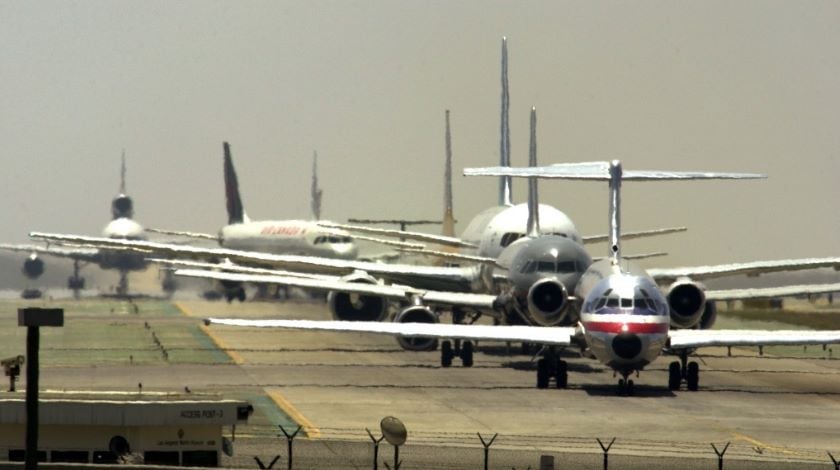Photo: pbs.org
Reading Time: 3 minutesThe civil aviation ministry expects the new aviation policy will be taken up today by the Union Cabinet.
The Union Cabinet, which is meeting at 10.30am, is likely to take up the much delayed policy, besides a proposal to increase the age of practising doctors to 65 years from the current 60, said a government official, who did not wished to be named.
“It is expected, but the agenda is never disclosed, so we have to wait,” this official said.
To be sure, the policy has missed several deadlines in the past.
The aviation ministry sent the cabinet note on the aviation policy earlier this month. The much delayed aviation policy has 22 points and includes proposals for new airlines to fly international routes before completing five years, regional connectivity and tighter guidelines for grant of bilateral international rights.
The policy has been in the making for long due to extensive stakeholder consultations and hectic lobbying. The airline industry has been divided over many proposals. Old airlines don’t want relaxations that help newcomers, while new airlines claim there is room for everyone to grow.
AirAsia and Vistara, both with Tata investments, want the policy to go through, while IndiGo, Jet Airways, GoAir and SpiceJet are lobbying against it.
AirAsia, in its annual report this month, said it was lobbying hard. “Currently, the airline (AirAsiaIndia) is restricted by the 5/20 ruling which requires airlines to have served the local market five years and operate at least 20 aircraft before they can go international. However, the ruling is expected to be revoked along with a new National Civil Aviation Policy (NCAP) to be introduced in the near future, given massive lobbying against it,” AirAsia Berhad said in its 2015 annual report.
In February, Tata Group chairman emeritus Ratan Tata accused old carriers of lobbying and using “monopolistic pressures” to retain preferential treatment under the 5/20 rule.
“The lobbying for discriminating policies between old and new airlines is reminiscent of protectionist and monopolistic pressures by vested interests’ entities who seem to fear competition, as in a variety of other sectors over the years,” Tata had said in a message posted on his Twitter handle.
“One hopes when the new policy is introduced it will be free of discrimination and protectionism, so that Indian aviation can grow for the benefit of consumer and the common man—not to serve the interests of select beneficiaries of protectionism,” he had said.
Airlines opposed to the policy have been meeting top Bharatiya Janata Party (BJP) officials over the past few months, besides lobbying with the ministry.
“If the 5/20 norm is removed, domestic fares will go up as airlines will deploy capacity (aircraft) on international routes which will also create more overseas hubs,” IndiGo president Aditya Ghosh had said in a joined press briefing with other airlines soon after Tata went public with the spat.
In late March, the Tatas reminded everyone how they were the ones who were discriminated against.
“For people who say that look at the recent past and this is also unfair. We could also say look at the distant past which is even more unfair. We are the pioneers in the space and we are having to… (fight it out),” said Mukund Rajan, member (group executive council) and brand custodian of Tata Sons, on 30 March.
“We don’t need a certificate from anybody to tell us on whether we have a right to belong here or not. If anyone has a right to be in aviation, it’s the Tatas,” he said.
Air India, the country’s oldest airline, was started by Tata Group’s J.R.D. Tata in 1932 as Tata Airlines. The government decided to take it over later.

